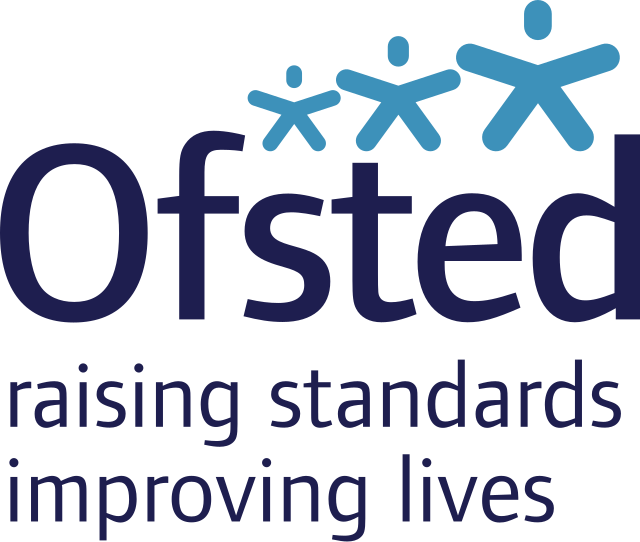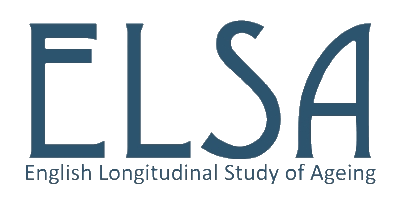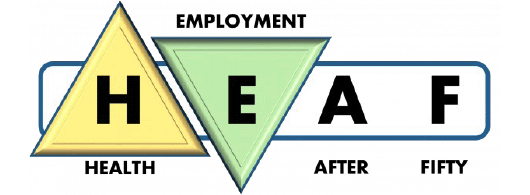All Datasets All Measures
Filters (showing )
1958 National Child Development Study (NCDS)

The 1958 National Child Development Study is a multidisciplinary national longitudinal birth cohort study following the lives of over 17,000 people born in 1958. The study aims to improve understanding of the factors affecting human development over the whole lifespan. Follows histories of health, wealth, education, family and employment from early life with linked biomedical and examination performance data integrated into the study.
1970 British Cohort Study (BCS70)

The 1970 British Cohort Study (BCS70) is a multidisciplinary national longitudinal birth cohort study. Original aims were to examine the social and biological characteristics of the mother in relation to neonatal morbidity, and to compare the results with the 1958 National Child Development Study. With each successive sweep, the scope of the enquiry has broadened from a strictly medical focus at birth, to encompass physical, educational, social and economic development.
Adult Social Care Client Level Data (ASC-CLD)

Adult Social Care Client Level Data (ASC-CLD) is a DHSC project set up as an extension to a North West pilot, building on the pilot's successes of working to a standardised social care data specification and linking this data with health data to provide a more holistic view of their system. The pilot system collected and analysed client-level adult social care data from participating local authorities who provided the mandatory information specified, to support local health and care systems. The client level data specification has now been agreed in collaboration with social care data leads from 21 local authorities (LAs) who represent all regions in England and the Directions were then published in December 2020 to allow ASC CLD data submissions. Its purpose is to: 1. Monitor, at a population level, particular cohorts of service users and designing analytical models which support more effective interventions in health and adult social care. 2. Monitor service and integrated care outcomes across a pathway or care setting involving adult social care. 3. Develop, through evaluation of person-level data, more effective prevention strategies and interventions across a pathway or care setting involving adult social care. 4. Design and implement new payment models across health and adult social care. 5. Understand current and future population needs and resource utilisation for local strategic planning and commissioning purposes including for health, social care and public health needs.
Adult Social Care Finance Return (ASC-FR)

The Adult Social Care Finance Return (ASC-FR) is often used alongside the Short and Long Term (SALT) collection to provide information regarding adult social care activity and finance on local authorities in England to create an official statistics report. The return is submitted by every local authority in the UK and is used to support policy and planning.
Adult Social Care Survey (ASCS)

The ASCS asks service users questions about quality of life and what impact care ans support services have on their quality of life. The survey is conducted annually and is conducted by Councils with Adult Social Services Responsibilities (CASSRs). The survey seeks the opinions of service users aged 18 and over in receipt of long-term support services funded or managed by social services and is designed to help the adult social care sector understand more about how services are affecting lives to enable choice and for informing service development.
Adult Social Care Workforce Survey (ASCWS)

The Workforce Survey was a voluntary survey completed by CQC-registered care homes and domiciliary care providers via the Capacity Tracker. It ran for a month from 13th September to 14th October, 2021, and aimed to gain insight into the scale of workforce challenges and specific areas of concern.
Adults With Learning Difficulties in England (AWLDE)

The Adults With Learning Difficulties in England survey took place once between 01 Apr 2003 to 31 Mar 2004. This was the first ever national survey about the lives of people with learning difficulties in England. It was the first time that this type of survey had been carried out anywhere in the world. The survey told policy makers how much more needed to be done if people with learning difficulties were to be more included in their communities and to have a better life. It fulfilled a Government promise (Valuing People, a White Paper 2001) to help people to live full and independent lives as part of their local communities.
Assuring Transformation (AT)

Assuring Transformation collects data to monitor the progress in moving people with learning disabilities from inpatient to community settings. Data is collected about people with a learning disability, autism or both who are getting care in hospitals for their mental health or because they have had behaviour that can be challenging. Data is collected via the NHS Digital Clinical Audit Platform (CAP) on an ongoing basis. Submitters are expected to keep data held in this system up to date and reflect changes as and when they occur. This information tells policy makers: how many people are in hospital; how long they have been in hospital for; when their care and treatment is checked; what kind of hospital they are in.
Avon Longitudinal Study of Parents & Children (ALSPAC)

The Avon Longitudinal Study of Parents & Children (ALSPAC) is a multi-generational, population-based prospective birth cohort study. Established in the early 90s, ALSPAC follows the lives of over 14,500 people born between April 1991 and December 1992 and their family members. Children and their families have been followed intensively, primarily with annual questionnaires, as well as clinical assessments for a sub-sample of cohort members. ALSPAC was specifically designed to understand the ways in which genetic and environmental factors interact to influence health, behaviour, and development across the lifespan. The ALSPAC study has collected data using a range of methods. Mental health measures collected in postal questionnaires and from clinic assessments are detailed on the Catalogue.
Born in Bradford (BiB)

Born in Bradford is a large birth cohort study based at Bradford Royal Infirmary, a hospital in the city of Bradford, West Yorkshire. The study was established in 2007 to examine how genetic, nutritional, environmental, behavioural and social factors impact on health and development during childhood, and subsequently adult life in a deprived multi-ethnic population.
British Household Panel Survey (BHPS)

The British Household Panel Survey began in 1991 and was a multi-purpose study whose unique value resided in the fact that it followed the same representative sample of individuals over a period of years. Sampling was by household and every adult member within each sampled household was interviewed. The main objective of the BHPS was to further the understanding of social and economic change at the individual and household level in Britain. It was discontinued in 2007 though some sample members were recruited to become sample members in the UK Household Longitudinal Survey (Understanding Society).
Children’s social care data in England (CSCDE)

Inspection data and information about the providers and places of children’s social care in England as well as inspections and inspection outcomes.
Cognitive Function and Ageing Study II (CFAS II)

Since the baseline of MRC CFAS there has been an increase in life expectancy, changes in major chronic disease and potentially advances in symptomatic treatments for Alzheimer’s disease and other dementias. CFAS II builds upon the design and infrastructure of MRC to investigate the implications of changes in morbidity and frailty on health itself, as well as the use of services and expenditure in health and social care on future. It also provides important baseline information on older people aged 65-84 in 2008-2011 who will reach the age of greatest frailty during the 2020’s, when the peak in the number of people aged 85 or over is expected and at a time when major therapeutic interventions for dementia could be expected to have an effect.
Cognitive Function and Ageing Study Wales (CFAS Wales)

CFAS Wales is a longitudinal study looking at health and cognitive function in older people living in Wales. The study builds on the design and infrastructure of the Cognitive Function and Ageing Study collaboration (CFAS) exploring biomarkers and other early indications of risk of cognitive decline, such as imaging. It also investigates factors that may delay the onset of dementia, specifically focusing on the role of bilingualism and social networks and allow a more in-depth examination of rural-urban variations, which have been markedly unexplained in previous studies.
Community Services Statistics (CSS)

Community Services Statistics is a monthly report on publicly funded community services for people of all ages using data from the Community Services Data Set (CSDS) reported in England for August 2023. It has been developed to help achieve better outcomes and provide data that will be used to commission services in a way that improves health, reduces inequalities, and supports service improvement and clinical quality.
Deferred Payment Agreements, England

Deferred Payment Agreements England contains data taken from the Deferred Payment Agreements (DPA) return to provide information regarding the number and associated £ value of Adult Social Care Deferred Payment Agreements in England. A DPA is a loan from their local council that homeowners can use to pay for their care or nursing home. The loan value is taken against the value of their home via a legal charge so that they do not have to sell their home immediately.
English Longitudinal Study of Ageing (ELSA)

The English Longitudinal Study of Ageing (ELSA) is a longitudinal study that collects multidisciplinary data from a representative sample of the English population aged 50 and older. The survey data are designed to be used for the investigation of a broad set of topics relevant to understanding the ageing process including economic position, physical and mental health, labour market activity, retirement and social networks.
Family Resources Survey (FRS)

The FRS is an annual report that provides facts and figures about the incomes and living circumstances of households and families in the UK. It is a continuous household survey which collects information on a representative sample of private households in the United Kingdom. The primary purpose of the FRS is to provide the Department for Work and Pensions (DWP) with data to inform the development, monitoring and evaluation of social welfare policy. FRS annual publications provide statistics and commentary on information such as income from all sources; housing tenure; caring needs and responsibilities; disability; pension participation; and savings and investments.
Fostering in England (FIE)

This dataset covers the numbers of foster carers and foster places and placements, in both local authority (LA) and independent fostering agencies (IFA). This includes data relating to types of foster care, registrations, de-registrations, and various other subjects.
General Household Survey (GHS)

The aim of the General Household Survey was to provide government departments and organisations with data on a range of topics relating to private households to aid monitoring and policy-making. The General Household Survey was carried out between 1971 and 2007, with two breaks (1997-1998 and 1999-2000) when the survey was redeveloped. The survey was discontinued in 2007.
Generation Scotland (GSSFHS)

GS:SFHS is a family-based genetic epidemiology study with DNA and socio-demographic and clinical data from 24,000 volunteers across Scotland aged 18–98 years. The breadth and depth of phenotype information collected, participants’ mechanisms for linkage of all data to comprehensive routine health-care records, and ‘broad’ consent from participants to use their data and samples for a wide range of research were designed to maximize the power of the resource to identify, replicate or control for genetic factors associated with a wide spectrum of illnesses and risk factors, both now and in the future. It has recently added on a new module called COVIDLife in which quesitons related to COVID-19 were asked to participants over three main sweeps in 2020 and 2021. There are also three young persons' sweeps and a sweep which focuses specifically on rural areas.
Growing Up in Scotland (GUSBC)

Growing Up in Scotland (GUS) is a longitudinal research study that tracks the lives of thousands of children and their families from the early years, through childhood and beyond. Launched in 2005, GUS has collected information on three nationally representative cohorts of children born in 2004-05 (Birth Cohort 1), 2002-03 (Child Cohort) and 2010-11 (Birth Cohort 2). This page provides information about Birth Cohort 1 (BC1). The main aim of the study is to provide new information to support policymaking in Scotland, but it is also intended to provide a resource for practitioners, academics, the voluntary sector and parents.
Guardianship under the Mental Health Act, 1983 (GMHA)

Data on the use of Guardianship orders under Sections 7 and 37 of the Mental Health Act 1983. Includes yearly time series since 2003-04. The data is collected directly from councils in England, also known as ‘local authorities’ in this publication. Local authorities usually assume the role of the guardian.
Health and Employment After Fifty (HEAF)

HEAF is a prospective cohort study of adults in England aged 50 and over that aims to examine the relationship between extended working life and health and shed light on how best to support the well-being of older workers. Main study questions focused on the impact of common health problems (especially musculoskeletal disorders) on work capability and participation; the social, occupational, personal and medical co-factors which influence vocational outcomes among older people, and the impact of job loss on physical and psychological health.
Health Survey of England (HSE)

The Health Survey for England monitors trends in the nation’s health and care, providing information about adults aged 16 and over, and children aged 0 to 15, living in private households in England. Each survey includes core questions (e.g. about smoking, alcohol, general health); measurements such as height, weight, and blood pressure; and analysis of blood and saliva samples. In addition, there are question modules on specific topics that vary from year to year.
Labour Force Survey (LFS)

The Labour Force Survey (LFS) is a study of the employment circumstances of the UK population. It is the largest household study in the UK and provides the official measures of employment and unemployment. This provides evidence for policy- and decision-making, and for directing resources to where they are needed most.
Learning Disability Statistics Scotland (LDSS)

All local authorities in Scotland collect information on the numbers of people with learning disabilities and/or autism in their area. Information is collected about everyone who is known to the local authority – not just the people who are using services. A report about the number of people with learning disabilities and/or autism in Scotland is published every year.
Mental Capacity Act 2005, Deprivation of Liberty Safeguards (DoLS)

These official statistics provide findings for England from the Mental Capacity Act 2005, Deprivation of Liberty Safeguards (DoLS) data collection. DoLS are a legal framework applying to individuals who lack the mental capacity to consent to the arrangements for their care. Where such care may amount to a "deprivation of liberty" the arrangements are independently assessed to ensure they are in the best interests of the individual concerned. The aim of this data collection is to inform users about aspects of DoLS activity, including the profile of people for whom a DoLS application was received, applications completed and their outcome, and applications not completed.
Mental Health of Children and Young People in England Surveys (MHCYPS)

The Surveys of the Mental Health of Children and Young People (MHCYP) are a series of national surveys of the mental health of children and young people. Each survey involves interviewing a large, stratified probability sample of children and young people, and their parents and teachers. The primary aim of the surveys is to collect robust data on a range of topics relating to the mental health of children and young people to improve understanding of the state of children and young people’s mental health and wellbeing and inform the design of mental health services.
Mental Health Services Data Set (MHSDS)

The MHSDS is a patient level, output based, secondary uses data set which aims to deliver robust, comprehensive, nationally consistent and comparable person-based information for children, young people and adults who are in contact with services for mental health and wellbeing, Learning Disability, autism or other neurodevelopmental conditions. As a secondary uses data set it re-uses clinical and operational data for purposes other than direct patient care, for example: commissioning, service improvement and service design. It defines the data items, definitions and associated value sets extracted or derived from local information systems. The MHSDS brings together information captured on clinical systems as part of patient care. It covers not only services provided in hospitals but also outpatient clinics and in the community, where the majority of people in contact with these services are treated. It is mandatory for NHS funded care providers, including independent sector providers, to submit MHSDS data. Data for non-NHS funded clients can also now be submitted on an optional basis.
Millennium Cohort Study (MCS)

The Millennium Cohort Study (MCS) is a national longitudinal birth cohort study following the lives of around 19,000 young people born in the United Kingdom in 2000-01. This multidisciplinary survey aims to capture the influence of early family context on child development and outcomes. Children from minority ethnic backgrounds and children in Scotland, Wales & Northern Ireland are oversampled to help capture the diversity of backgrounds into which children are born in the beginning of the 21st century.
Million Women Study (MWS)

The Million Women Study is a population-based cohort study of 1.3 million women born in 1935-1950 with the aim of providing reliable information on potentially modifiable causes of common and serious illnesses. Participants’ health has been followed mainly through linkage to routinely collected NHS records as well as re-surveys. Current focus is on research on dementia, osteoporosis, stroke and other severe disabling conditions that become increasingly common as women age.
MRC Cognitive Function and Ageing Study (MRC CFAS)

MRC CFAS began in the late 1980s with the initial aim of investigating dementia and cognitive decline in a representative sample of more than 18,000 people aged over 65 years. The study primarily aimed to find out how common dementia and associated conditions are in England and Wales and also, how many new cases of dementia develop each year. The range of information collected in the interviews has also allowed the study to also investigate depression and physical disability in the older population in addition to looking at healthy active life expectancy. MRC CFAS ran from 1989 – 2011. Having provided estimations of dementia occurrence for the UK, CFAS was increasingly asked to provide evidence on generational change in dementia, cognition and life expectancy by the government and the public, leading to its daughter studies, CFAS II & CFAS Wales.
MRC National Survey of Health & Development (MRC)

The MRC National Survey of Health and Development is the oldest and longest running continually-studied British birth cohort study, having followed a sample of 5,362 men and women born in England, Scotland and Wales since their birth in one week in March, 1946. During their childhood, the main aim of the NSHD was to investigate how the environment at home and at school affected physical and mental development and educational attainment. During adulthood, the main aim was to investigate how childhood health and development and lifetime social circumstances affected their adult health and function and how these change with age. Today, with study members in their seventies, the NSHD offers a unique opportunity to explore the long-term biological and social processes of ageing and how ageing is affected by factors acting across the whole of life.
National Pupil Database (NPD)

The National Pupil Database collects data on children and young people aged 2-21 in state funded education and higher education. Data are matched using pupil names, dates of birth and other personal and school characteristics, including special educational needs, disability, and indicators for free school meals, a child in care, and families in the armed forces. Schools use Management Information Systems to collect and analyse pupil-level information at local level. Data from these systems are used to complete the termly school census returns provided to Local Authorities (regional) or directly to the Department for Education (national) three times a year. The database is used to assess school funding and performance and supports policy making as well as further research.
Newcastle 85+ (N85)

The Newcastle 85+ Study is the world’s largest population-based longitudinal study of health and ageing in the over-85s. The study aims to assess the spectrum of health in the oldest old, identify factors which contribute to the maintenance of health and independence and advance understanding of the biological nature of human ageing.
Next Steps (LSYPE)

Next Steps is a longitudinal survey collecting information about young people in England aged 13 to 14 in 2004. Previously known as the Longitudinal Study of Young People in England, the study was originally designed to examine key factors affecting educational progress, attainment and transitions following the end of compulsory education and collects data on education, employment, economic circumstances, family life, physical and emotional health and wellbeing, social participation and attitudes.
Northern Ireland Longitudinal Study of Ageing (NICOLA)

As the first large scale longitudinal study of ageing in Northern Ireland, NICOLA aims to help gain a better understanding of the factors that affect social and health outcomes in the older Northern Ireland population. Over time, it will inform new prevention strategies, new interventions, new models of health and social care delivery, and ultimately contribute to how society should change to ensure a better quality of life for all.
Our Future: Longitudinal Survey of Young People in England: Cohort 2 (LSYPE2)

The aims of the survey are to: 1. follow a sample of young people through the last few years of compulsory education. 2. follow their transition from secondary education to education, training, employment and other activities. 3. collect information about their careers and about factors affecting their careers. 4. provide an evidence base about the lives and experiences of young people.
Personal Social Services Expenditure and Unit Cost Return (PSS-EX1)

The Personal Social Services Expenditure and Unit costs publication was an annual report on the social care expenditure of Councils with Adult Social Services Responsibilities (CASSRs). In 2007-08 information on social services expenditure was collected separately for children's and adult social care expenditure. From 2008-09, the expenditure on children's social services became the responsibility of the Department for Education and was removed from the Personal Social Services: Expenditure and Unit Costs (PSS-EX1) return. The last data collection period was carried out on 01 Apr 2015 to 31 Mar 2016.
Safeguarding Adults, England (SAE)

Safeguarding Adults is a statutory duty for Councils with Adult Social Services Responsibilities in England under the Care Act 2014, in order to safeguard adults from abuse or neglect. Data is collected directly from these councils, also known as ‘local authorities’. The aim of the data is to inform users about aspects of safeguarding activity at national, regional and local level.
School Census (SchC)

Completion of the school census is a statutory requirement under section 537A of the Education Act 1996. Most schools complete the school census three times per year.These collections give an excellent coverage of pupils educated in England. Local authority maintained schools and pupil referral units submit census data to their local authority who authorize the data and then submit it to the department. Academies and other schools not maintained by a local authority are responsible for submitting their own data to the department. The data aims to give a fair representation of the policy area, aiding the work of policy makers and commissioners.
Scottish Census (ScoC)

Scotland’s Census is the official count of every person and household in the country. There has been a census in Scotland every 10 years since 1801, except 1941. The 2021 census in Scotland was moved to 2022 due to the impact of the COVID-19 pandemic. The answers people give to census questions help build up a picture of the population. Government and other service providers rely on census data to make important decisions. These can include how money will be spent on: schools, roads, hospitals etc.
Short and Long Term Support (SALT)

The SALT data collection is a set of measures co-produced with stakeholders. It has two main sections, relating to requests for social care support and provision of short term support (described in the Guidance as ‘STS’ measures) and service users and carers receiving eligible support (described as ‘LTS’ measures). SALT has been designed to track service user journeys through the social care system. Support to carers also features in the return, and has its own LTS measure. The SALT return is intended to offer scope for genuine comparability between local authorities, and reliable aggregation to provide national and regional overviews.
Skills for Care: Adult Social Care Workforce Data Set (ASC-WDS)

Skills for Care's Adult Social Care Workforce Data Set (ASC-WDS) is recognised as the leading source of high quality data and workforce intelligence for adult social care in the UK. The ASC-WDS collects information online about providers offering a social care service and their employees. Social care providers register and then maintain information on the ASC-WDS website. Repots and visualisations cover topics such as recruitment and retention, sickness, pay rates, qualifications and demographics.
Special Educational Needs Person Level Survey (SEN2)

SEN2 collects data about children for whom the local authority has responsibility for the management of the SEN processes, under the 1996 Education Act and the 2014 Children and Families Act. The information collected via the annual SEN2 data collection provides the major source of data collected on children and young people with Education, Health and Care (EHC) plans. It is the only source of data on the totality of EHC plans maintained by individual local authorities. It allowed ministers, Parliament, central and local government, external organisations and the public at large to monitor government policies and their effectiveness, and to see how many children and young people with EHC plans there are in individual local authorities.
Stats Wales (StatWales)

Stats Wales is the Welsh Government’s free-to-use online repository for detailed statistical data for Wales. Stats Wales allows users to view and manipulate datasets on-screen, including the ability to produce charts. Data can be downloaded in a variety of formats and can be saved and shared. The system covers nearly 1,000 datasets, including key information on Wales’ population, economy, government spending and performance as well as the environment, education, transport and health.
Survey of Adult Carers in England (SACE)

This national survey takes place every other year and is conducted by Councils with Adult Social Services Responsibilities (CASSRs). The survey seeks the opinions ofcarers aged 18 or over, caring for a person aged 18 or over, on a number of topics that are considered to be indicative of a balanced life alongside their unpaid caring role.
Survey of Carers in Households (SCH)

The Survey of Carers in Households was commissioned by the Department of Health as part of the Government’s Carers’ Strategy programme. The NHS Information Centre for health and social care (NHS IC) undertook responsibility for this survey which was funded by the Department of Health and the Department for Work and Pensions. The survey collected details on the prevalence of caring in England, the demographic profile of carers, the impact of caring duties upon the carer, details of the services carers receive and a profile of the cared for people. Carers who were under 16 years of age were excluded from the Survey of Carers in Households 2009/10, as were people in communal establishments.
UK Census (UKCen)

The UK census is undertaken by the Office for National Statistics every 10 years and gives us a picture of all the people and households in England and Wales. The census asks questions about individuals, their household and home. In doing so, it helps to build a detailed snapshot of the society. Information from the census helps the government and local authorities to plan and fund local services, such as transportation, education and healthcare.
Understanding Society – UK Household Longitudinal Survey (UKHLS)

Understanding Society is a largescale longitudinal survey of approximately 40,000 households across the United Kingdom. As a multi-topic household survey, the purpose of Understanding Society is to understand social and economic change in Britain at the household and individual levels by capturing important information about the social and economic circumstances, attitudes and behaviours and health of people living in thousands of households. The Understanding Society study is a successor to the British Household Panel Survey (BHPS), with the BHPS sample forming part of Understanding Society from Wave 2 onwards.
West of Scotland Twenty-07 (WOS)

The West of Scotland Twenty-07 Study is a population-based multi-cohort study which has followed three cohorts of men and women in the West of Scotland across twenty years. Set up in 1986, the study was designed to investigate the differences in health by socio-economic circumstances, gender, the place where people live, age, ethnic group and family type. Through tracking three cohorts of volunteers, each born roughly twenty years apart, the study provides data at critical points in the lifespan, as participants make the transition from adolescence to working life; through the main part of working life; and from working life to retirement. Additionally, the study was designed to explore the effect of the historical context of people’s lives on their health and circumstances by comparing the different cohorts at the same age at different points in time.
Whitehall II (WH2)

The Whitehall II study was established to investigate the causes of social inequalities in health with a cohort of 10,308 participants was recruited from the British Civil Service in 1985. The study has shown the importance of psychosocial factors such as work stress and work-family conflict in heart disease and diabetes in addition to the contribution of unhealthy behaviours and traditional risk factors such as high blood pressure. The study is now a study on ageing, with the 30-year follow-up allowing research on multimorbidity, functional decline, frailty, disability, and dementia.
Wirral Child Health and Development Study (First Steps)

The Wirral Child Health and Development Study is a prospective epidemiological longitudinal study starting in pregnancy established in 2007 to identify early social, emotional and biological risks and processes involved in the development of childhood conduct problems. The study was designed to identify pathways to antisocial outcomes that might require differing treatment responses and to identify pathways to childhood emotional problems. Moving into adolescence, the WCHADS team are interested in additional factors important for child and adolescent mental health, including social media experiences, friendships, bullying, risky behaviours and physical, hormonal and psychological changes associated with puberty.
